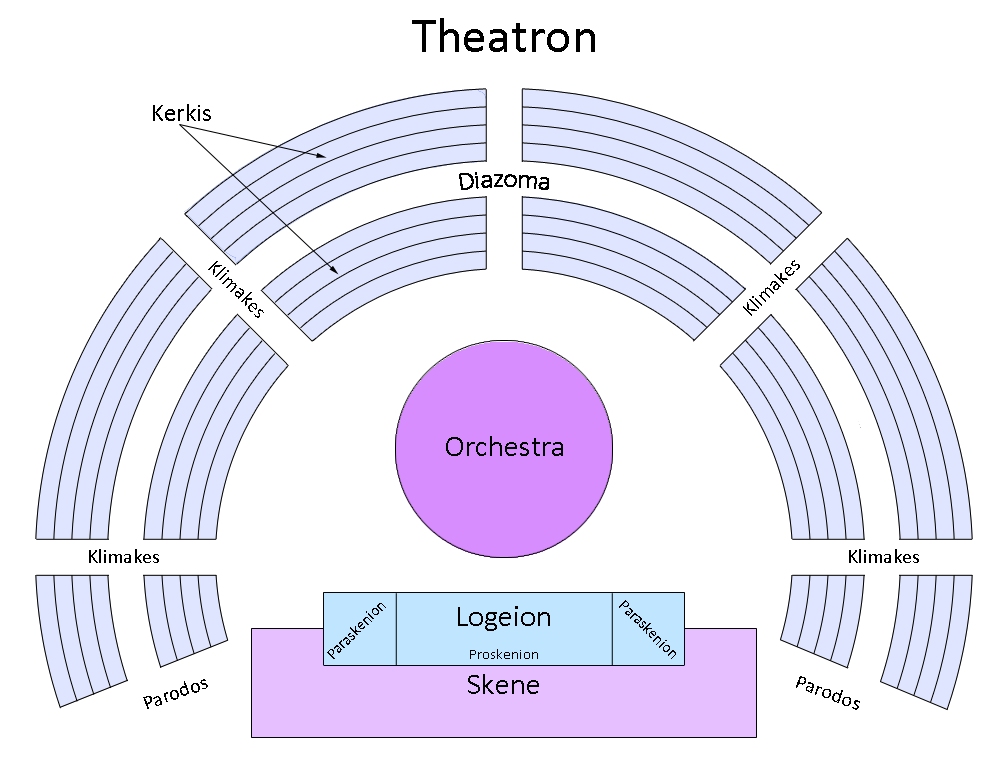Greek Theater
Classical Antiquity
Carl Friedrich Seiffert, Public domain, via Wikimedia Commons
For the ancient Greeks, theater was more than a form of entertainment. Like music, the Greeks considered drama an integral component of enculturation and indispensible in building up civic virtue. Playwrights were honored and celebrated and performances were intwined with religious rituals.
Greek plays were usually performed in an theatron, a semicircular seating area built into a hill. At the center of the theatron was a structure called the skene. Actors would hide behind the skene and come out when it was their turn to speak, giving rise to the English word "scene." Actors would enter the stage from the sides, called paraskenia, and perform on the proskenion, the area in front of the skene. In front of the proskenion was a circular space called the orchestra, where the chorus would sing, often representing the people and interacting with the primary actors.

Later on, actors would perform on an elevated stage called a logeion ("speaking place"), performing monologues and dialogues.
The audience would sit in the kerkis, between which ran stairs called klimakes. A long diazoma divided the upper and lower seating levels. Greek plays were usually accompanied by other festivals, dancing, and sacrifices in honor of the Greek gods, especially Dionysius, the god of wine and theater. The three main genres of Greek theater were tragedy, comedy, and satires known as "satyr plays."

Alexander Mayatsky, CC BY-SA 4.0
Most of ancient Greece's most revered playrights came from Athens.
Aeschylus is considered the father of tragedy. Some of his famous plays include The Persians, an historical drama about the Battle of Salamis; a trilogy called the Oresteia, about King Agammemnon of Argos; and Prometheus Bound.
Another tragic playwright was Sophocles, whose most famous work is a trilogy consisting of Oedipus the King, Oedipus at Colonus, and Antigone. Yet another famous Athenian tragedian was Euripedes, the author of Medea and Bacchae.
Aristophanes is considered the father of comedy. He often used his plays to slander and ridicule his political enemies. Famous works include The Clouds, The Birds, and Lysistrata.
